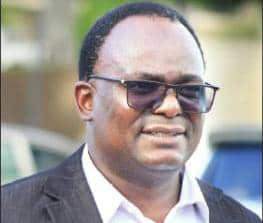
In recent months, there has been an alarming trend in Malawi, where government officials and public servants are increasingly being silenced by the very institutions they serve.
This practice is not just a minor inconvenience, but a significant blow to the foundations of democratic governance, accountability, and transparency.
Public officers, who are supposed to act as independent voices representing the interests of the people, are now finding themselves increasingly constrained in their ability to speak freely about matters of public concern.
The government’s heavy-handed approach to curbing dissent within its ranks has sparked concerns that the country is slowly sliding into a more authoritarian regime.
In many instances, public officers who dare to voice opposition to government policies or who expose corruption within the system are met with intimidation, threats of dismissal, and other forms of retaliation.
This stifling of dissent creates a chilling atmosphere, where those in positions of power and authority are forced to toe the party line, even when it contradicts their moral or professional obligations.
The silencing of public officers can be seen in various sectors of governance, from the judiciary to the civil service, where those who are supposed to uphold the law and serve the public good are increasingly being pushed to remain silent or face dire consequences.
In the judicial sector, there have been several high-profile cases where judges and legal experts who have spoken out against the government’s actions have faced undue pressure.
Some have even been removed from cases, reassigned, or faced professional consequences simply for speaking out about issues such as corruption, human rights abuses, or the erosion of the rule of law.
This sends a dangerous message to both the public and the international community: that those in positions of power within the government can operate with impunity, free from the checks and balances that are supposed to keep them accountable.
One of the most troubling aspects of this trend is that it undermines the very principles of democracy.
Democracy thrives on the free exchange of ideas, open debates, and the ability of citizens, including public officers, to hold those in power accountable for their actions.
When government officials are silenced, it not only violates their basic rights but also deprives the public of critical information that can help them make informed decisions about their leadership.
Moreover, the fear of retaliation prevents many from speaking out about issues that affect the public.
This is particularly concerning in a country like Malawi, where corruption remains a pervasive issue that affects all sectors of society.
By silencing those who would speak out against corruption or abuse of power, the government is essentially protecting the very system that keeps the public vulnerable to exploitation and harm.
There is also a broader concern that this silencing of public officers could deter future generations of leaders from entering public service.
If young professionals see that speaking the truth can lead to career-ending consequences, they may choose to avoid a career in public service altogether, further diminishing the quality of governance and leadership in the country.
The implications of this practice extend beyond just the public sector.
When public officers are silenced, it erodes the public’s trust in the government and the institutions meant to protect their interests.
The government’s actions also alienate civil society, which relies on the ability to engage with public officers and government institutions in order to promote transparency and accountability.
As the government continues to tighten its grip on public discourse, it is crucial for civil society organizations, the media, and citizens to push back against this growing trend.
There must be a concerted effort to ensure that public officers retain their right to speak freely and that those who attempt to silence them are held accountable for their actions.
The government must be reminded that it exists to serve the people, and the people have a right to know what is happening within their own government.
To truly serve the people, public officers must be allowed to act as independent voices, holding the government accountable for its actions and ensuring that the needs of the citizens are met.
If the government continues to silence its officers, it risks undermining the very principles of democracy and accountability that it was elected to uphold.
The consequences of this cannot be overstated.
The erosion of democratic principles and the stifling of public officers will ultimately harm the country, as it deprives the public of their right to be informed and engaged in the political process.
In order to protect the future of democracy in Malawi, there must be a concerted effort to push back against the silencing of public officers.
This includes advocating for stronger protections for whistleblowers, creating an environment where dissent is respected, and ensuring that those who speak out are not subjected to intimidation or retaliation.
Public officers must be allowed to do their jobs with integrity, transparency, and accountability, without fear of punishment for doing so.
It is only by fostering an environment where free speech and democratic values are protected that Malawi can ensure a bright future for its citizens and its democracy.
As we move forward, it is essential that the government reflects on its actions and considers the long-term consequences of silencing its public officers.
In a democracy, silence is not golden, but a sign of the erosion of fundamental rights and freedoms.














